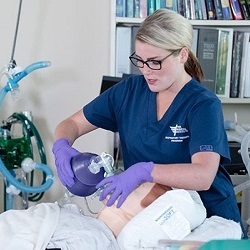Respiratory Therapist Job Description
Working as a Respiratory Therapist means that you will take care of those who have breathing issues.
It’s possible to work in several different places as a Respiratory Therapist, including:
- Nursing homes
- Hospitals
- Outpatient facilities
- Intensive care units
- Sleep centers
A Respiratory Therapist will assess a patient’s illness, and decide on diagnosis and treatment.
Whether a patient is in the hospital or in a clinic, a Respiratory Therapist will help treat breathing issues like COPD, asthma, cystic fibrosis, and many other illnesses.
Duties
A Respiratory Therapist will do many tasks throughout the day, especially if they see different patients with various illnesses.
Some of the things that you can find a Respiratory Therapist doing on a daily basis include:
- Intubate patients with a tube
- Monitor breathing and vital signs
- Treat patients with medications
- Consult with doctors
- Perform tests to see patients lung capacity
Salary
If you are interested in working as a Respiratory Therapist, then you should know that the yearly salary is around $61,830 annually.
That salary can be achieved for those with several years of experience, or for Respiratory Therapists who work in large populations.
Most Respiratory Therapists, when just starting out in the career, will make closer to $47,380 to $54,000 a year.
With certifications, specializations, and further education, it’s possible to make over $95,540 yearly as a Respiratory Therapist.
Working in areas with larger populations, like California or Florida, will likely allow for higher salaries at around $80,000 a year.
People who work in smaller states with fewer people can make closer to $50,000 a year as a Respiratory Therapist.
Annually National Average Salary: $84,260
Average Annual Salary by State
| State | Avg. Annual Salary |
|---|---|
| Alabama | $65,500 |
| Alaska | $93,670 |
| Arizona | $76,990 |
| Arkansas | $67,790 |
| California | $106,790 |
| Connecticut | $88,770 |
| Delaware | $89,890 |
| District of Columbia | $102,460 |
| Florida | $81,310 |
| Georgia | $85,890 |
| Hawaii | $94,220 |
| Idaho | $73,890 |
| Illinois | $81,810 |
| Indiana | $75,510 |
| Iowa | $71,460 |
| Kansas | $73,300 |
| Kentucky | $67,650 |
| Louisiana | $73,100 |
| Maine | $77,720 |
| Maryland | $88,600 |
| Massachusetts | $95,120 |
| Michigan | $75,230 |
| Minnesota | $90,030 |
| Mississippi | $70,410 |
| Missouri | $74,120 |
| Montana | $78,540 |
| Nebraska | $75,000 |
| Nevada | $85,160 |
| New Hampshire | $84,750 |
| New Jersey | $97,110 |
| New Mexico | $70,780 |
| New York | $105,740 |
| North Carolina | $76,710 |
| North Dakota | $81,610 |
| Ohio | $78,380 |
| Oklahoma | $75,230 |
| Oregon | $94,160 |
| Pennsylvania | $76,170 |
| Rhode Island | $84,490 |
| South Carolina | $73,720 |
| South Dakota | $64,000 |
| Tennessee | $68,820 |
| Texas | $78,150 |
| Utah | $81,840 |
| Vermont | $75,950 |
| Virginia | $82,480 |
| Washington | $96,050 |
| West Virginia | $68,440 |
| Wisconsin | $82,530 |
| Wyoming | $73,390 |
| Puerto Rico | $31,090 |
Annual Average Salary: Top 5 States
The top earning state in the field is California, where the average salary is $106,790.
These are the top 5 earning states in the field:
* Employment conditions in your area may vary.
How to Become a Respiratory Therapist
Step 1 Earn a Degree
At a minimum, a Respiratory Therapist must have an Associate’s degree.
This is because the career deals with a sensitive matter like the respiratory system.
An Associate’s degree in respiratory therapy can take about two years to finish, and will likely include an internship and clinical classes.
Clinical classes will give you hands-on experience working in simulated or even real situations.
There will also be plenty of classroom time.
Most respiratory therapy programs will include courses like:
- Anatomy and Physiology
- Respiratory ventilation
- Critical patient care techniques
- Cardiopulmonary processes
It’s possible to earn a Bachelor’s degree for this career as well.
Typically, a Bachelor’s degree takes around four years to complete.
The majors that are acceptable for a Respiratory Therapist include:
- Pulmonary Science
- Respiratory Therapy
With a degree in Pulmonary Science, you can expect to take classes like:
- Health Care Documentation and Evaluation
- Caregiving in respiratory therapy
- Disease Management
- Community Health Problems and Practices
Step 2 Become Licensed
Once you have a degree as a Respiratory Therapist, you will likely need to become licensed.
This isn’t legally required in some states, so check with your employer to find out more information.
If you do require licensure, there are two agencies available:
- National Board for Respiratory Care
- American Association for Respiratory Care
Licensure consists of taking an exam, which will show your competency as a Respiratory Therapist.
This exam can cost from $150 to $200 depending on the state.
In order to be eligible for licensure, you will need to have an Associate’s degree from an accredited program.
It may be possible to waive the exam by showing documentation of continued education, work experience, or military experience.
Step 3 Earn Certifications
Many people working as Respiratory Therapists decide to become certified in specific areas after working in the field for a couple of years.
This way, they can learn what they like, and do what makes them passionate.
There are several certifications that are given by the National Board of Respiratory Care.
These certifications include:
- Certified Respiratory Therapist
- Registered Respiratory Therapist
- Sleep Disorder Specialist
- Certified Pulmonary Function Technologist
- Neonatal/Pediatric Respiratory Care Specialist
Each certification has its own requirements, including having at least two years of work experience and an Associate’s degree.
Due to the ever-changing world of respiratory therapy, it is important to keep credentials up to date.
All certifications require recertification after three years.
This can be done by showing proof of further education or retaking the exam.
Step 4 Further Your Career
If earning certifications isn’t enough to keep you satisfied in your career, then you may want to consider some other ways to get ahead as a Respiratory Therapist.
Specializing in an area of the hospital can help with promotions and raises.
Niches to look into as a Respiratory Therapist include:
- Pediatric
- Cardiac
- Critically ill
- Sleep disorders
You could also become the supervisor at an office or in the hospital where you work.
Other advancement opportunities could include specializing in-home care, where you can make your own hours.
There are many advancements in teaching and research as well.
Earning a Master’s degree could open many more doors to a world beyond a Respiratory Therapist.
These degrees can take about two years to finish but can result in many more opportunities.
Popular Programs
Education
Working as a Respiratory Therapist means that you will have to listen to people’s lungs, hearts, and assess them appropriately.
You’ll also be required to perform tests and analyze medical data.
That is why this career requires at least an Associate’s degree in order to find employment.
An Associate’s degree in respiratory therapy program can be found across the country at many community colleges, universities, and other facilities.
On average, it takes about two years to finish an Associate’s degree.
There are many classes to take to become a Respiratory Therapist, including English, psychology, and math.
Science should be on the top of your course list though, as well as classes like:
- Anatomy and Physiology
- Pulmonary Function Testing
- Cardiopulmonary Pharmacology
- Respiratory Rehabilitation
- Respiratory Ventilation
- Critical Patient Care Techniques
Along with classroom time, an Associate’s degree program will typically allow students to work an internship as well as do clinical work.
Clinical work will provide hands-on experience with machinery and techniques, while an internship can teach day to day tasks for Respiratory Therapists to students.
Holding an Associate’s degree will get you into entry-level jobs as a Respiratory Therapist.
Those who have a desire to learn more in this career will opt for a Bachelor’s degree in either pulmonary science or respiratory therapy.
Both of these majors will do well for a Respiratory Therapist.
In this type of degree, which takes about four years to earn, you can expect to take courses including:
- Emergency Care
- Cardiopulmonary Techniques
- Pulmonary Anatomy and Physiology
- X-ray Interpretation
- Medication Delivery
When you earn a degree as a Respiratory Therapist, you are showing employers that you want to learn more and that you are knowledgeable in your career.
With a Bachelor’s degree in respiratory therapy or pulmonary science, you may find other career opportunities.
These types of careers may include:
- Sleep Center Technologist
- Polysomnographic Technologist
- Pulmonary Function Technician
- Clinical Specialist
- Director of Cardiopulmonary Services
Video About The Career
Certification and Licensing
In order to work as a Respiratory Therapist in some states, it is required to become licensed.
Licensure can be obtained by taking an exam given through the National Board for Respiratory Care or the American Association for Respiratory Care.
The requirements vary state by state, so ask your local community college or university for more information.
The typical requires are:
- Have an Associates Degree
- Pass the exam
If your state requires licensure, then you must reapply for it every 5 years.
There are optional certifications for Respiratory Therapists as well.
Through the National Board for Respiratory Care, there are several certifications available:
- Certified Respiratory Therapist
- Registered Respiratory Therapist
- Sleep Disorder Specialist
- Neonatal/Pediatric Specialist
The Certified Respiratory Therapist Certification is considered the entry-level credential.
In order to be eligible for this certification, you must have been enrolled in a program.
This exam is taken even before you take state licensure exams.
It is a multiple-choice exam that consists of various sections:
- Patient Data Evaluation
- Initiation and Modification of Interventions
- Troubleshooting and Quality Control of Equipment
In order to be eligible for the Registered Respiratory Therapist credential, you must have graduated from a program or have at least four years of experience as a Certified Respiratory Therapist.
This certification is also obtained by taking an exam.
The topics on the exam include:
- Patient Data
- Clinical Assessment
- Performing Procedures
- Troubleshooting and Quality Control
- Evidence-Based Practices
Becoming a Sleep Disorder Specialist requires that you be a Registered Respiratory Therapist or a Certified Respiratory Therapist.
It’s also important that you have experience with sleep disorder tests for this credential.
On the Sleep Disorder Specialist exam, you will find:
- Sleep Disorder Testing
- Documentation During Testing
- Sleep Event Reporting
- Administrative Functions
- Treatment Plan
The Neonatal/Pediatric Specialist certification exam has the same requirements as the Sleep Disorder Specialist.
However, experience in the Neonatal/Pediatric ward is preferred.
There are several areas on this exam as well:
- Competencies Shared Between Critical and General Care
- Manage Equipment
- Assess and Manage Airways
- Facilitate Procedures and Evaluate Efficacy
- Manage End of Life Care
Having a certification or specialization will open many doors as a Respiratory Therapist.
Most of these credentials require recertification after 3 years.
Certification Example:
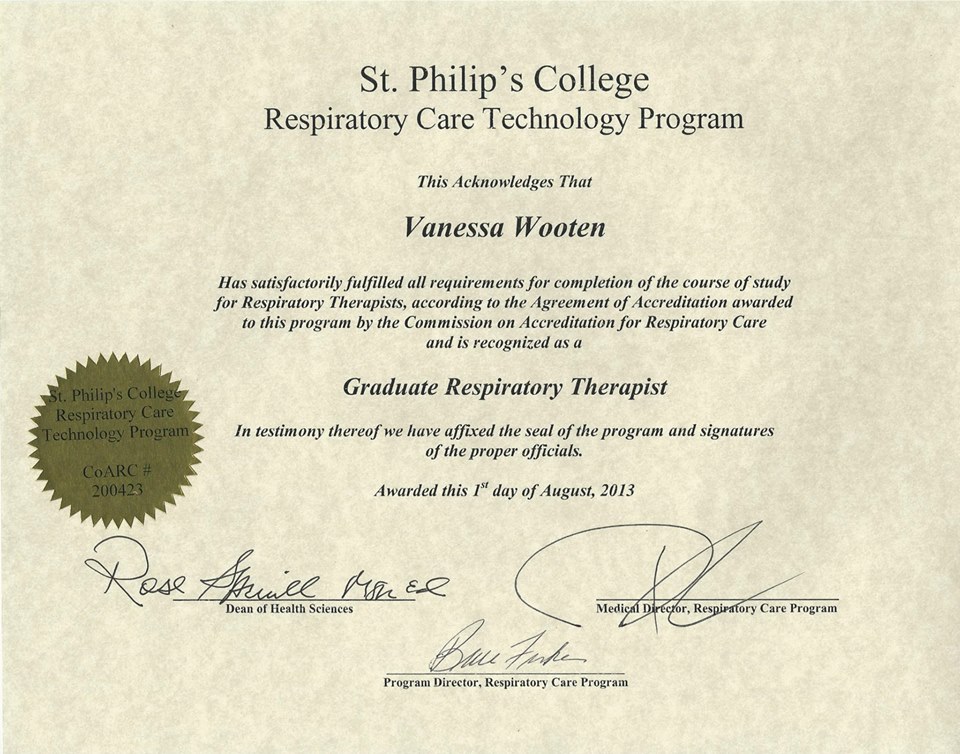
Average Training Program Duration: 2-4 Years
If you are interested in a training program to become a Respiratory Therapist, you can expect it to take anywhere from one year to two years to finish.
Most Respiratory Therapist programs that are one year include basic education and an internship.
This can lead to an entry-level career as a Respiratory Therapist.
For those interested in a longer education, an Associate’s degree or other certificate programs can take around two years to finish.
There are no certification programs that provide extra training to Respiratory Therapists.
The best training is hands-on work experience in this field.
Job Outlook
If you are looking to start a career as a Respiratory Therapist, now may be the time.
This career is projected to grow around 23 percent over the next ten years.
This rise is much higher than many other careers in the same field.
There are many reasons for this growth, such as the baby boomer generation aging and creating more need for medical assistance.
Advancements in technology, and the ability to detect diseases, will also create more job opportunities over the next decade.
Lastly, many more patients are using respiratory therapy and doctor’s appointments instead of being readmitted into hospitals.
This will call for more need for Respiratory Therapists in doctor’s offices and as home health aides.
With the current Covid-19 pandemic, the necessity for Respiratory Therapists has gone up in many hospitals across the country.
Employment Growth Projection: 13%
2023
2033
That's a higher than average projected growth of 17,500
Should You Become a Respiratory Therapist?
Overall Satisfaction: Medium

Working in the medical field is going to be stressful, especially when patients are scared or in pain.
That is why it takes a strong person to work as a Respiratory Therapist.
The hours can be long for this career, and upward mobility is less than satisfactory.
Earning a Bachelor’s degree can increase chances of promotions or raises, which can lead to a more rewarding career.
Also, earning certifications or specializations can make this career more beneficial as well.
While the pay is good in this career, Respiratory Therapists say they deserve more for their hard work.
Helping others and creating a relationship with patients makes this career worthwhile.
Average Salary: High

On average in the United States, a Respiratory Therapist will make around $61,830 a year.
When just starting out in this career, Respiratory Therapists can expect a salary closer to $47,380 a year.
However, with time, experience, and certifications, it’s possible to make over $95,540 in some areas as a Respiratory Therapist.
In areas like California and Washington D.C., Respiratory Therapists will make more money than in more rural areas like Idaho or Kansas.
In California and Washington D.C., Respiratory Therapists make an average of $80,000 a year.
While in Idaho and Kansas, this salary is near $55,000 a year.
Job Growth Outlook: High

This career will likely continue to grow over the next decade.
In fact, job opportunities for Respiratory Therapists will grow at least 23 percent over the next several years.
The reason for this growth is the necessity for medical treatment in the aging population.
Also, advancements in medicine and technology have made it easier to diagnose and treat respiratory issues.
Those interested in finding a career as a Respiratory Therapist will likely find more employment opportunities in larger populations, especially larger aging populations.
Education Duration: 2-4 Years

In order to become a Respiratory Therapist, you must enroll in an Associates degree program.
This can be done at a local community college, university, or even online.
Most Associates degrees will take around two years to finish.
For those interested in gaining promotions and furthering their career in the medical field, a Bachelor’s degree may be necessary.
This can take another two years to finish, all in all, it can take 2-4 years to become a Respiratory Therapist.
Personal Skills Needed

Often, this career requires long hours on your feet, which can be tough for some people.
This career also requires Respiratory Therapists to work with people of different, ages, races, and diagnoses.
There are other skills that will help you to become a great success in this career as well, these include:
- Compassion for others
- Detail-oriented
- Patience
- Problem-solving skills
- Ability to work alone and with a team
- Knowledge of the medical field
- Empathy
- Math and science skills
- Stamina
- Critical-thinking skills
- Time management skills
- Great bedside manner
Frequently Asked Questions
What is the average salary of a Respiratory Therapist?
Annual salary can depend on many things, especially experience in the field, education level, and certifications.
For those with minimal experience as a Respiratory Therapist, the annual salary can be around $47,380 to $54,000.
However, with more experience and education, the average Respiratory Therapist will make $60,570 a year.
Earning a Bachelor’s degree, becoming specialized, or even working in a large hospital or medical facility can create even larger salaries for Respiratory Therapists, up to $95,540 a year in some areas.
How long does it take to become a Respiratory Therapist?
Most careers working in a medical career will require some type of education.
This is so that the employer, as well as the patients, know the employee is capable of handling their job.
As a Respiratory Therapist, you will work closely with people who have breathing issues and other respiratory system diseases.
Having a relevant education can lead to a successful career in this field.
That’s why it takes around two years to become a Respiratory Therapist.
Most Respiratory Therapists earn an Associate’s degree, and others consider a Bachelor’s degree, which can take around 4 years to finish.
What does a Respiratory Therapist do?
A Respiratory Therapist will spend a lot of time with patients, assessing their breathing and lung capacity.
Not only will a Respiratory Therapist listen to the heart and lungs, but they will also do x-rays, examine patients, and give treatments as well.
This job will have you working closely with patients as well as doctors, so knowing medical terminology will help.
Other duties that a Respiratory Therapist might find throughout the day include:
- Cleaning and sanitizing equipment
- Recording data about patients
- Performing lung tests
- Performing heart tests
What is the demand for Respiratory Therapists?
It seems that every year, there is a bigger need for Respiratory Therapists.
With the novel coronavirus pandemic still in effect, this need has increased since last year.
There won’t be any stopping this career in the next decade, either, as it’s expected to grow by at least 23 percent.
The reason for this increase is that the baby boomer population is growing older, which will call for more medical needs.
Also, advancements in technology have made it easier to diagnose and treat patients.
If you are interested in becoming a Respiratory Therapist, now is a great time to begin your journey.
How much does it cost to become a Respiratory Therapist?
It’s important to get a good education in this career field, that is why working as a Respiratory Therapist can require an Associate’s degree.
On average in the United States, an Associate’s degree takes about two years to complete and can cost anywhere from $10,000 to $20,000, depending on the college or university attended.
There are some Respiratory Therapists who earn Bachelor’s degrees, which take about four years to finish and can cost anywhere from $30,000 to $45,000.
All in all, it can cost anywhere from $10,000 to $45,000 to become a Respiratory Therapist.
Respiratory Therapist Resources
- 14 Pros and Cons of Being a Respiratory Therapist
- Bachelor’s in Respiratory Therapy Programs
- How Long Does It Take to Become a Respiratory Therapist?
- Online Respiratory Therapy Training Programs
- Qualifying for CRT and RRT Certification
- Respiratory Care Therapy Vocational Programs Costs
- Respiratory Therapist Salaries
- Respiratory Therapy Jobs
- What is a Respiratory Therapist?
- Why Study Respiratory Therapy?
More Medical Careers
| Career | |
|---|---|
 | Certified Nursing Assistant Working as a Certified Nursing Assistant is an entry-level role that will give you hands-on experience when you are ready to take the next step in your medical career. |
 | Dental Assistant Dental assistants help dentists to provide patient care, keep records, and care for the dental equipment. |
 | Dental Hygienist Dental hygienists take care of cleaning teeth to promote hygiene and help avoid cavities and gum problems. |
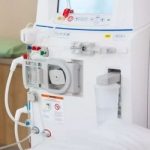 | Dialysis Technician Dialysis technicians maintain and monitor dialysis equipment, and also act as primary caregivers for patients undergoing dialysis treatment. |
 | Dog Groomer Dog groomers attend to grooming dogs, usually at dog salons or big pet-related chain stores. |
 | Healthcare Administrator Healthcare administrators – also known as healthcare executives or health services managers – are responsible for the planning, direction, and coordination of medical and health services. |
 | Home Health Aide Home health aides provide home care to individuals who require assistance in their day-to-day living. |
 | Licensed Practical Nurse (LPN) Licensed Practical Nurses provide basic nursing care to patients and work with Registered Nurses and Doctors. |
 | Medical Assistant Medical assistants support the work of physicians, nurses, and other health professionals. |
 | Medical Biller and Coder Medical billers and coders manage, organize, and code various health information data. |
 | Medical Technologist Medical laboratory technologists collect bodily samples and conduct tests to analyze those samples. |
 | Medical Transcriptionist Medical transcriptionists go over voice recordings to convert them into written texts. |
 | Nutritionist As a Nutritionist, you’ll be tasked with creating meal plans, counseling, and understanding dietary restrictions for all types of clients. |
 | Patient Access Representative The work involves helping people to orient themselves to the space and everything that is going on. |
 | Patient Care Technician Patient care techs work directly with patients helping them with daily activities and assist the medical staff by measuring and monitoring the patients' vital signs among other tasks. |
 | Pharmacy Technician Pharmacy technicians provide patients with medications through prescription or over the counter. |
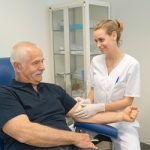 | Phlebotomist As a Phlebotomist, it will be your responsibility to take blood samples from patients and send them to the lab for further testing. |
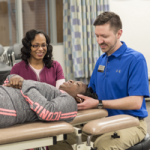 | Physical Therapist Assistant Physical therapist assistants provide physical therapy services to patients and aide to physical therapists. |
 | Professional Recovery Coach A professional recovery coach is a life coach who works with someone during their addiction recovery process. |
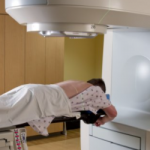 | Radiation Therapist Allied health provisional who specializes in radiation oncology treatments. |
 | Registered Health Information Technician Registered Health Information Technician (RHIT) help store and verify accuracy of health records as well as analyze patient data. |
 | Registered Nurse (RN) Registered Nurses provide hands-on patient care in various settings, mainly hospitals, and clinics. |
 | Sterile Processing Technician A sterile processing technician is a healthcare professional who is responsible for preparing, sterilizing, maintaining, packaging, and storing medical tools and equipment used in surgical and other medical procedures. |
 | Surgical Technologist Surgical technologists – also known as operating room techs – prepare operating rooms and assist doctors and nurses during surgical procedures. |
 | Vet Office Manager Veterinary office managers work to make sure that the daily operations run smoothly and efficiently at veterinary hospitals or veterinary clinics. |
 | Veterinary Assistant Veterinary Assistants work closely with Veterinarians to handle routine animal care. |
 | Veterinary Technician Veterinary Technicians assist veterinarians as well as diagnosing and treating animals, mostly in private clinics. |
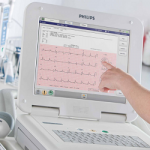 | EKG Technician EKG technicians test and monitor the cardiovascular system. |
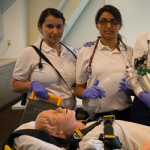 | EMT Trained emergency medical technician that arrives at the scene to provide medical services such as resuscitation. |
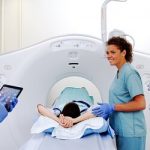 | MRI Technologist MRI Technologists use a machine to scan the body and create a detailed image of the inside for doctors to analyze. |
 | Optician Opticians are technicians and salespersons at the same time who spends most of their day talking to customers, reading prescriptions written by doctors, and dispensing glasses and lenses. |
 | Ultrasound Technician Ultrasound technicians aid physicians in monitoring and diagnosing patients through the use of ultrasonic imaging technology. |
 | X-Ray Technician X-Ray Technicians are medical imaging professionals who use technology to visualize the inside of our bodies. |
